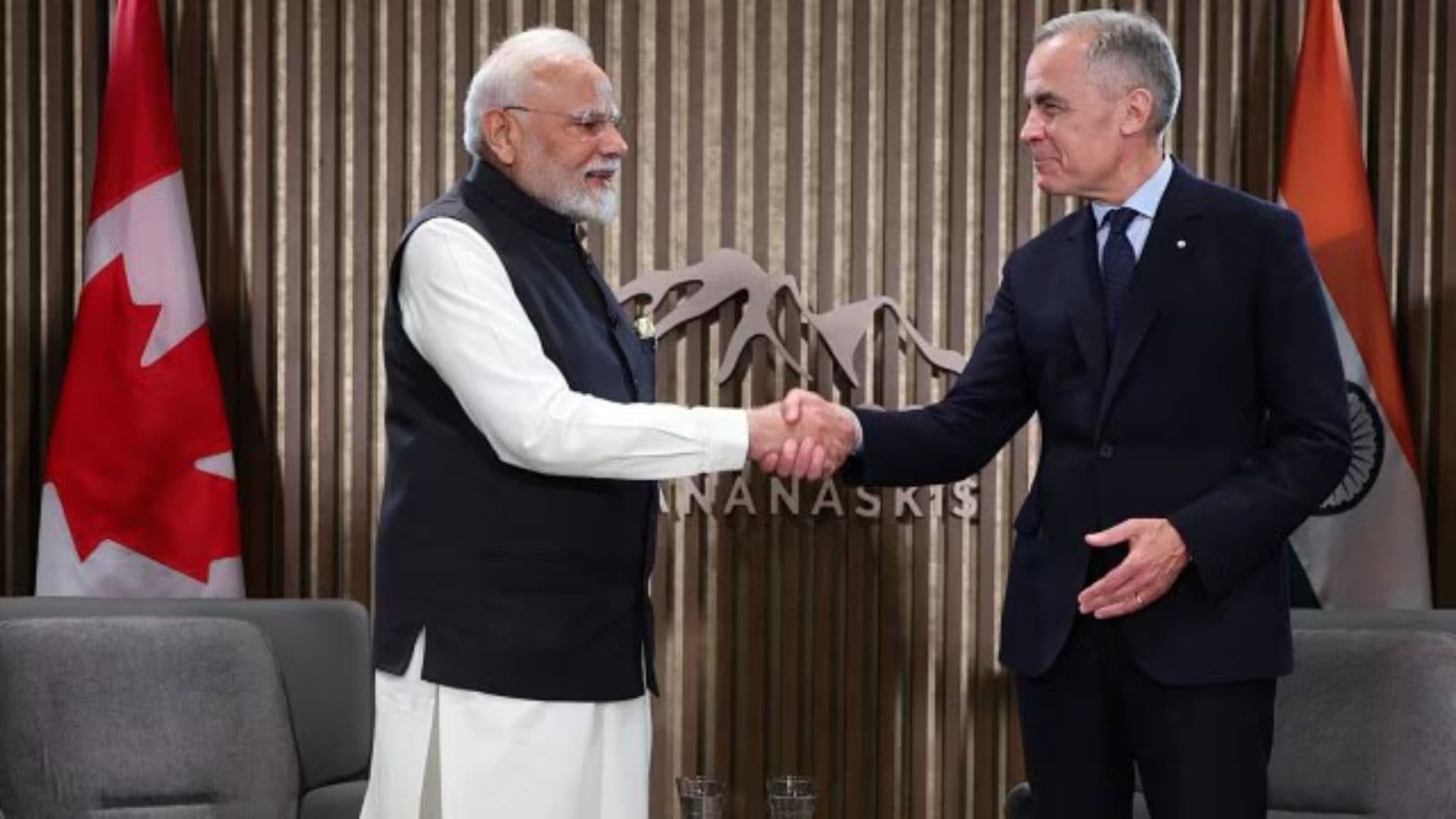India and Canada have agreed to formally resume talks on an ambitious Comprehensive Economic Partnership after Prime Minister Narendra Modi and his Canadian counterpart Mark Carney met in Johannesburg on the sidelines of the G20 Leaders’ Summit.
But they differed on the scale of ambition — the Indian side said it aims to increase bilateral trade to $50 billion by 2030 while the Canadian side set a target of $70 billion by the same year. In 2024, the India-Canada bilateral trade in goods and services was around $22.6 billion.

Sources said the difference in the numbers reflects a bullish estimate of the Indian market’s potential by Canadian businesses.
Canada and India launched talks 15 years ago for such a trade deal, but it was downgraded to a sectoral deal that would touch only specific industries.
In late 2023, Ottawa suspended trade talks after Justin Trudeau, the then Canadian Prime Minister, alleged that Indian government agents were potentially involved in the killing of Canada-based Khalistan separatist Hardeep Singh Nijjar — a charge India rejected as “absurd”.
Both countries began rebuilding their relationship after the change of guard in Ottawa in March.
Story continues below this ad
At their meeting in South Africa, Carney also accepted Modi’s invitation to visit India in early 2026.
About the trade talks, Indian envoy to Canada Dinesh Patnaik told Canadian outlet CBC: “The whole thing is both countries are mature enough to understand that we need to have a relationship where we discuss how people can be safe on the streets,” he said.
Patnaik also said if evidence is presented in court that substantiates Canada’s allegations, “then we will take actions ourselves, like we are taking action in the US,” adding that India does not have evidence at this time.
The Ministry of External Affairs said in a statement: “The leaders agreed to begin negotiations on a high-ambition Comprehensive Economic Partnership Agreement (CEPA), aimed at doubling bilateral trade to $50 billion by 2030.”
A Canadian government statement on Monday said: “Building on the 7th Ministerial Dialogue on Trade and Investment held in New Delhi, India, on November 13, 2025, the leaders agreed to formally launch negotiations for an ambitious Comprehensive Economic Partnership Agreement (CEPA) encompassing goods, services, investment, agriculture and agri-food, digital trade, mobility, and sustainable development. The leaders expressed confidence that the CEPA will serve as a powerful economic anchor and help more than double two-way trade to $70 billion by 2030.”
Story continues below this ad
The Canadian statement said Modi and Carney welcomed the positive momentum in bilateral relations since their last meeting at the G7 Summit in June and the new roadmap for bilateral engagement announced by their foreign ministers in October.
Following the return of high commissioners in August 2025, the two prime ministers agreed to enhance diplomatic staffing levels. “Prime Minister Carney also welcomed the progress being made in the law enforcement dialogue between the two countries,” the Canadian statement said, adding that Carney had accepted Modi’s invitation to visit India.
The MEA statement talked about uranium trade. “Both sides reaffirmed their longstanding civil nuclear cooperation and noted the ongoing discussions on expanding collaboration, including through long-term uranium supply arrangements.”









